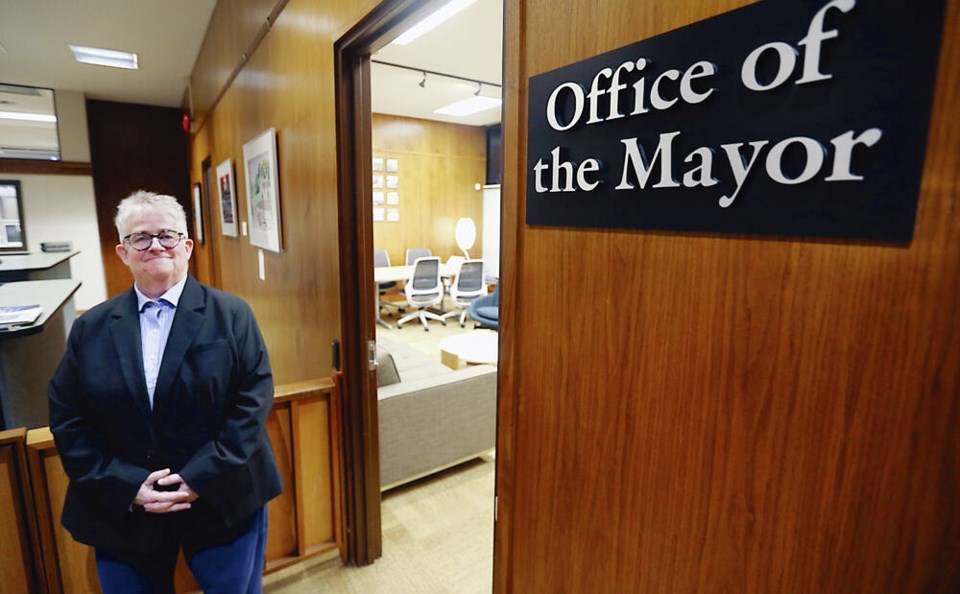If the province wants to help municipalities deal with the problem of short-term rental housing, it should take over the responsibility for regulating the industry. That was the reaction of Victoria Mayor Marianne Alto Friday, after provincial Housing Minister Ravi Khalon promised there would be new legislation introduced this fall to help cities get a better handle on the short-term rental industry.
Alto said if she had a wish list, the first item would be for the province to create regulations that are consistent across B.C. and that the province would enforce those rules.
“It would take the lion’s share of this off of our plates. Frankly, I would be willing to give that up if I had access to a provincial regulation that was provincially enforced,” she said. Given the size of the companies they are dealing with and the scale of the rental platforms, the companies ought to be dealing with a provincial or a national government, she said.
Alto said if the province isn’t contemplating that kind of legislation, her second choice would be to ensure municipalities have adequate resources to handle the market.
“One of the real frustrations is enforcement. We have a very limited bylaw division. We don’t have very many bylaw people, and they’re often doing things that are more urgent.”
Khalon did not go into specifics about what the province is planning for the short-term rental industry, but he told reporters the government has been made aware that cities are concerned about the lack of data on the number of short-term rentals and the lack of teeth in enforcement of existing rules.
“We believe with this legislation that the hosts, the companies that make a lot of money from the short-term rentals have a role and a responsibility to be part of the solution and help communities with their bylaws,” said Kahlon.
“The legislation will put in teeth to ensure that they have an important role to help local governments enforce the rules.”
Kahlon said short-term rental homes are diverting too much housing from the long-term rental market.
“We’ve heard from local governments and from various studies that have been done that they’re taking away rental housing that people desperately need and driving up rents across our communities,” he said.
“It is clear there needs to be additional tools to address the challenges around compliance around enforcement of local bylaws that ensure that the short-term rentals are working within communities,” he said.
“The proposed legislation that we’re bringing will make it easier for local governments to ensure that short-term rental platform hosts play by the rules and help them return much of that long-term housing back into communities.”
With studies confirming short-term rentals are contributing to housing affordability problems and in the absence of real power to regulate the industry, the City of Victoria took some action against the industry this year. Victoria council approved several changes to its short-term rental regulations.
The new Victoria regulations included increasing fines for operating without a business licence to $1,000 from $500, and to $500 from $250 for those who advertise without a licence; doubling the fine for contravening allowable use to $700; and increasing the cost of a licence for a non-principal residence to $2,500 from $1,000.
The city moved to restrict the occasional rental of someone’s entire home to four bookings per year and require those renting out their principal residence to furnish proof that the home is their principal residence.
The changes came in the wake of a study released by McGill University that found growth in the short-term rental market is driving up the cost of long-term rentals.
The researchers said short-term rentals took another 16,810 housing units out of B.C.’s long-term rental market in June, tightening up the rental market and driving up rental rates.
The study noted the addition of one dedicated short-term rental per 100 rental units in a neighbourhood contributes to an average rise in rent of $49 a month for that neighbourhood, while across the province, rents increased up to 16.6 per cent last year as a result.
The McGill study noted the short-term rental market in Victoria grew 7.4 per cent to 800 daily active listings over the past year. It said host revenue growth jumped 3.8 per cent over the last year to $4 million.
Across the Island, the number of short-term-rental listings grew 17.5 per cent to 6,310 over the last year, while host revenue grew two per cent to $29.6 million.
>>> To comment on this article, write a letter to the editor: [email protected]



